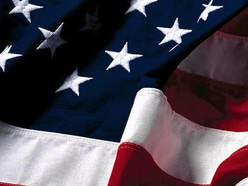
Three years after the recession technically began in the U.S., things are starting to shape up, according to the economics team at UBS, which is predicting 3.3% nominal GDP growth for full-year 2011.
That predicting makes the firm a bit of an outlier, as consensus estimates call for just 2.6% growth.
“Monetary and fiscal policy stimulus plus inventory rebuilding initiated a recovery in output, jobs and incomes of firms and households,” the team writes in its latest report. “Looking ahead, further easing of bank lending standards should again facilitate smaller firms’ hiring. Recovering corporate profits and the related improved stock market should aid spending. QE2 should help maintain low mortgage rates and assist in the housing recovery.”
Employment gains made in the fourth quarter of 2010 — the private sector created 128,000 jobs per month – marked a rebound from losses in Q3, averaging 30,000 jobs lost per month.
“We expect a stronger trend in the year ahead, driven by faster real GDP growth. Our forecast is for total payrolls to rise an average of 180,000 per month,” the report says. “We expect the result should be a modest decline in the unemployment rate to 9.0% by the end of 2011.”
The average number of hours worked per week will “probably rise modestly” from 34.1 hours in 2010, to 34.3 hours.
Meanwhile, Federal Reserve Chairman Ben Bernanke recently told Congress that a recovering “may” be taking hold, but that it was still weak. This suggests the Fed will maintain its accommodative monetary policy for some time to come.
UBS admits that downside risks remain, saying that its forecast could be undermined by flattening or declining wage growth, further declines in home values, and that the new Republican-dominated Congress could follow through on its promises of fiscal restraint.